 January 2021 in “Journal of clinical and cosmetic dermatology”
January 2021 in “Journal of clinical and cosmetic dermatology” Human skin responds to light with protective mechanisms, but more research is needed to understand these processes and their implications for health and therapy.
 January 2021 in “ABC Heart Failure & Cardiomyopathy”
January 2021 in “ABC Heart Failure & Cardiomyopathy” A 90-year-old man was diagnosed with heart failure due to wild-type transthyretin cardiac amyloidosis.
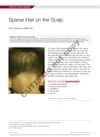
A 5-year-old girl has sparse, dry, and brittle hair but is otherwise healthy.

The document describes a rare case of IFAP syndrome, a genetic condition with symptoms of hair loss, light sensitivity, and scaly skin.
 April 2020 in “International journal of research in dermatology”
April 2020 in “International journal of research in dermatology” An 8-year-old girl has a rare, irreversible hair loss condition caused by a genetic mutation.
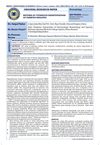 January 2020 in “PARIPEX INDIAN JOURNAL OF RESEARCH”
January 2020 in “PARIPEX INDIAN JOURNAL OF RESEARCH” Over half of the diabetes patients had skin issues, with fungal infections being most common.
 November 2019 in “International journal of research in Ayurveda and pharmacy”
November 2019 in “International journal of research in Ayurveda and pharmacy” A man regrew hair in 15 days using Pracchana and cupping therapy.
 October 2019 in “Academic medicine”
October 2019 in “Academic medicine” The medical student learned to balance medical knowledge with empathy when delivering difficult news to patients.
 August 2019 in “Journal of Investigative Dermatology”
August 2019 in “Journal of Investigative Dermatology” Skin may help in getting rid of excess iron through the process of skin cell renewal.
 August 2019 in “Journal of Investigative Dermatology”
August 2019 in “Journal of Investigative Dermatology” The study found that tight junctions reach the top layer of the skin's stratum granulosum, not just the second top layer as previously thought.

A high-fat diet caused severe health problems in female macaques but was reversible with a normal diet, while male macaques reacted differently.

Sinsun-yukza-hwan extract promotes hair growth in mice.
 May 2018 in “Journal of Investigative Dermatology”
May 2018 in “Journal of Investigative Dermatology” Fat under the skin can help hair grow longer, darker, and increase cell growth.
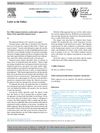 April 2018 in “British Journal of Oral & Maxillofacial Surgery”
April 2018 in “British Journal of Oral & Maxillofacial Surgery” The Gillies temporal incision is a safer and more cosmetically appealing method for biopsy of the superficial temporal artery.
 April 2018 in “Journal of Investigative Dermatology”
April 2018 in “Journal of Investigative Dermatology” Macrophages are more involved in Lichen planopilaris than in Frontal fibrosing alopecia.
 April 2018 in “Journal of Investigative Dermatology”
April 2018 in “Journal of Investigative Dermatology” The conclusion is that the cornea has two types of stem cells, with Lrig1+ cells being key for renewal in aging corneas, independent of CD44.
 April 2018 in “Journal of Investigative Dermatology”
April 2018 in “Journal of Investigative Dermatology” Different types of stem cells in the skin contribute to the variety of melanoma forms.
 April 2018 in “Journal of Investigative Dermatology”
April 2018 in “Journal of Investigative Dermatology” A new treatment using AGED to modulate PPAR-γ shows promise for treating scarring hair loss by protecting and repairing hair follicle cells.
 March 2018 in “Dermatología Argentina”
March 2018 in “Dermatología Argentina” The study found that the average age of women diagnosed with Frontal Fibrosing Alopecia in Argentina is higher than in other countries, but their symptoms are similar.
 February 2018 in “Journal of Aesthetic Nursing”
February 2018 in “Journal of Aesthetic Nursing” Clinics using lasers should have trained laser safety supervisors to reduce accidents and possibly lower insurance costs.

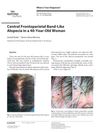 January 2018 in “Skin appendage disorders”
January 2018 in “Skin appendage disorders” A woman's hair loss was correctly diagnosed as Lichen planopilaris after initial misdiagnosis, highlighting the usefulness of trichoscopy in diagnosing hair disorders.
 January 2018 in “Springer eBooks”
January 2018 in “Springer eBooks” Trichotillomania is a condition where people repeatedly pull out their hair, which can be triggered by stress and has various physical signs.
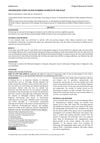 August 2017 in “Journal of evolution of medical and dental sciences”
August 2017 in “Journal of evolution of medical and dental sciences” Trichoscopy is effective for diagnosing different types of non-scarring hair loss.
 July 2017 in “The American Journal of Cosmetic Surgery”
July 2017 in “The American Journal of Cosmetic Surgery” A patient's hair loss after a browlift surgery improved on its own over 8 months.
 April 2017 in “Journal of Aesthetic Nursing”
April 2017 in “Journal of Aesthetic Nursing” Speak up at meetings to improve safety in cosmetic procedures.
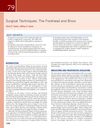 January 2017 in “Elsevier eBooks”
January 2017 in “Elsevier eBooks” The document concludes that choosing the right forehead and brow lifting technique based on individual patient characteristics is crucial to prevent complications and achieve desired results.
 January 2016 in “Springer eBooks”
January 2016 in “Springer eBooks” Understanding drug interactions, side effects, and patient-specific factors is crucial for effective dermatological care.
 January 2016 in “Springer eBooks”
January 2016 in “Springer eBooks” Cryotherapy may be an effective and simple treatment for mild hair loss with few side effects.
 December 2015 in “Journal of Psoriasis and Psoriatic Arthritis”
December 2015 in “Journal of Psoriasis and Psoriatic Arthritis” A patient experienced long-lasting hair loss after using acitretin for psoriasis.






























